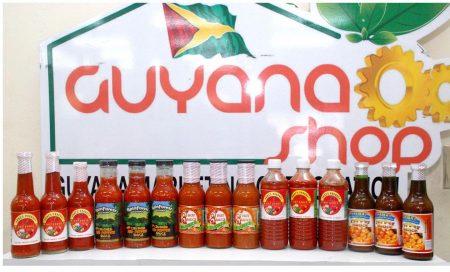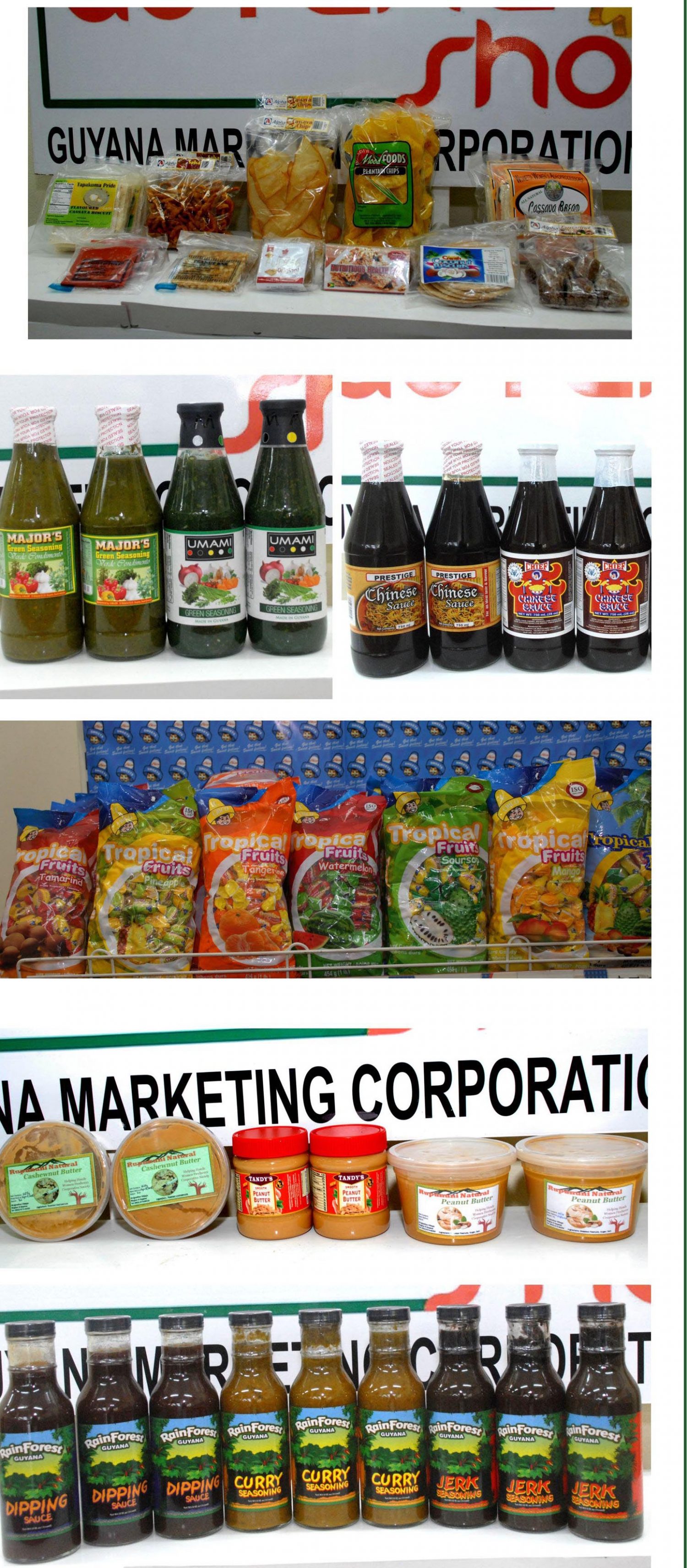Much of the evidence of the steady growth of Guyana’s manufacturing sector, particularly its agro-processing sector, is to be found on the display shelves of the Guyana Marketing Corporation’s Guyana Shop at the corner of Robb and Alexander streets. On the surface the growth of this sector is only modestly discernable. However, viewed together, in the spaces afforded by the modest size of the Guyana Shop, there is manifest evidence of an encouraging level of inventiveness, creativity and a determination of Guyanese men and women across the country to build businesses of their own, utilizing the abundance of various raw materials at our disposal.
The most recent Agro Processors Catalogue published by the Guyana Marketing Corporation (GMC) lists and displays more than one hundred agro processed products and a good few others that are challenging for space on the local and in some instances, overseas market. The Catalogue lists scores of brands of pepper sauces, blended seasonings, honey, barbecue sauces, cassava bread, coconut oil, coconut water, confectionary, flours, jams and jellies, soaps and detergents, among others.
There is encouraging evidence too that the pressure of competition has, in recent years, significantly raised the quality of labeling and packaging afforded these products. Over time, deficiencies in these areas have been among the primary reasons why our local products have not found their way onto the display shelves of high-end supermarkets and other commercial outlets in Georgetown and across the country.
 The Stabroek Business’ checks with those outlets point to a preference for imported brands of many products which are also being manufactured locally. While it can be argued that the predominance of imported brands (of items like jams, jellies, sauces, peanut butter and detergents) on supermarket shelves is a function of customer preference, the failure of some locally produced goods to take hold on the Guyana market is, in large measure, a function of a lack of exposure. The promotion of locally produced food products, detergents etc. does not have to be driven by a protectionist posture that rigidly locks imported brands out. There is ample room for locally manufactured products that match the quality standards of the high-profile outlets to take their places alongside their better-known, thoroughly branded counterparts so that Guyanese can be afforded an opportunity of choices that take account of our local small and medium scale manufacturers. We believe that a firm commitment on the parts of the various outlets will create a more competitive environment that will serve as an incentive for the sector to grow.
The Stabroek Business’ checks with those outlets point to a preference for imported brands of many products which are also being manufactured locally. While it can be argued that the predominance of imported brands (of items like jams, jellies, sauces, peanut butter and detergents) on supermarket shelves is a function of customer preference, the failure of some locally produced goods to take hold on the Guyana market is, in large measure, a function of a lack of exposure. The promotion of locally produced food products, detergents etc. does not have to be driven by a protectionist posture that rigidly locks imported brands out. There is ample room for locally manufactured products that match the quality standards of the high-profile outlets to take their places alongside their better-known, thoroughly branded counterparts so that Guyanese can be afforded an opportunity of choices that take account of our local small and medium scale manufacturers. We believe that a firm commitment on the parts of the various outlets will create a more competitive environment that will serve as an incentive for the sector to grow.
In addition to a higher level of product display in local outlets we believe there is room for collaboration between producers and outlet owners/managers in the staging of special product displays that allow for particular focus of locally produced goods. This is a lobby well worth the attention of the Guyana Manufacturing & Services Association, the Georgetown Chamber of Commerce & Industry, the Private Sector Commission and of course the Government of Guyana.





